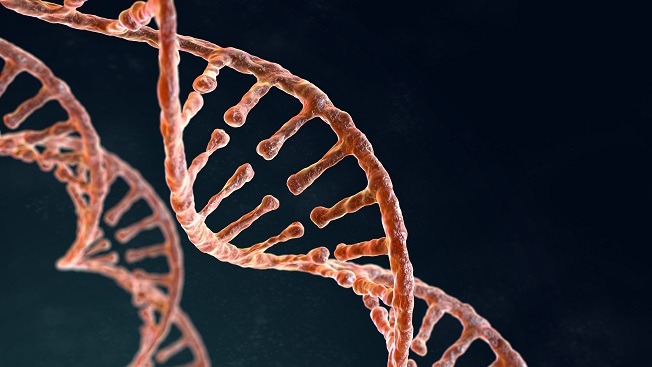One of the most complex cellular mechanisms orchestrating and synchronizing our bodily processes is our biological clock and circadian rhythm. Over the course of a 24-hour day, circadian rhythms responding to lightness and darkness are regulated by the body’s biological clock composed of proteins interacting with cells found in almost every tissue and organ throughout the body. Over the years, epidemiological studies have researched the effects of what happens when the environmental natural circadian rhythm is disrupted – e.g., night shift workers, jet lag, sleep deprivation – and how certain hormone-dependent cancers, like prostate cancer, appear to be influenced by this disruption, particularly for high-grade prostate cancer.
It should be noted that this same finding has also been found in women with breast cancer, another hormone-dependent cancer, who work night shift jobs.
The relationship between biological clock disruption and cancer initiation
However, the precise mechanism underlying the relationship between biological clock disruption and cancer initiation and progression has remained unknown. That mechanism may have been found thanks to recent research at Sidney Kimmel Cancer that has discovered an unforeseen role of the circadian factor gene CRY-1 and its link to prostate cancer. In late-stage prostate cancer, this particular gene was shown to increase and was associated with poor outcomes in men with this stage of cancer. Specifically found was that CRY-1 is elevated in late-stage prostate cancer altering the way cancer cells repair DNA.
Cryptochrome (CRY)-1 along with CRY-2 are photosensory receptors that regulate growth and development in plants and are regarded as critical components for circadian rhythms in mammals. However, when a person’s circadian rhythm is disrupted whether, by genetic mutation or environmental factors, this may lead to sleep disorders, as well as lifestyle diseases such as obesity, cancer, and mental disorders. It now appears this also significantly may affect the efficacy of prostate cancer treatment in late-stage disease.
Prostate cancer is hormone-sensitive cancer dependent on androgens like testosterone for growth and survival. Since androgen hormones like testosterone and dihydrotestosterone (DHT) help fuel prostate cancer cells stimulating them to grow and progress, a common treatment for prostate cancer is to suppress these male hormone androgens. Another goal of prostate cancer is to damage the cancer cells DNA causing defects in their ability to repair themselves leading to cancer cell self-destruction.
DNA damage and prostate cancer
Researchers with the study looked into CRY-1’s role in DNA repair in cells cultured harvested from prostate cancer patients. They found that when trying to cause DNA damage to prostate cancer cells exposed to radiation, CRY-1 levels increased, indicating it was responding to the damage inflicted. It appears that CRY-1 is involved in regulating the availability of factors required for the cell’s DNA and is altering how the cancer cells respond to DNA damage. This suggests that CRY-1 appears to offer protection to the cancer cells from therapies used to treat prostate cancer.
Since this finding suggests that when a prostate cancer tumor has high levels of CRY-1 offering this protection, androgen-targeting treatments become less effective for treating late-stage prostate cancer. Essentially, circadian factor CRY-1 is pro-tumorigenic. This same finding has also been found in women with breast cancer, another hormone-sensitive cancer.
As important as CRY-1 is for its role in circadian functioning, this study also reveals that elevated CRY-1 levels contribute to aggressive prostate cancer. When a person’s circadian rhythm is disrupted during cancer treatment, it reduces treatment efficacy. For now, scientists are exploring how to target and block CRY-1 and if there are other therapies for working synergistically to prevent CRY-1 repairing prostate cancer cells. With this information, the goal of researchers is to discover how best to sync a person’s natural circadian rhythm with their particular cancer treatment regimen finding the most beneficial time of day for treating their cancer.
This new and novel approach proves to be effective, this may be a game-changer for men with late-stage prostate cancer and a welcomed discovery in the fight against this disease.


